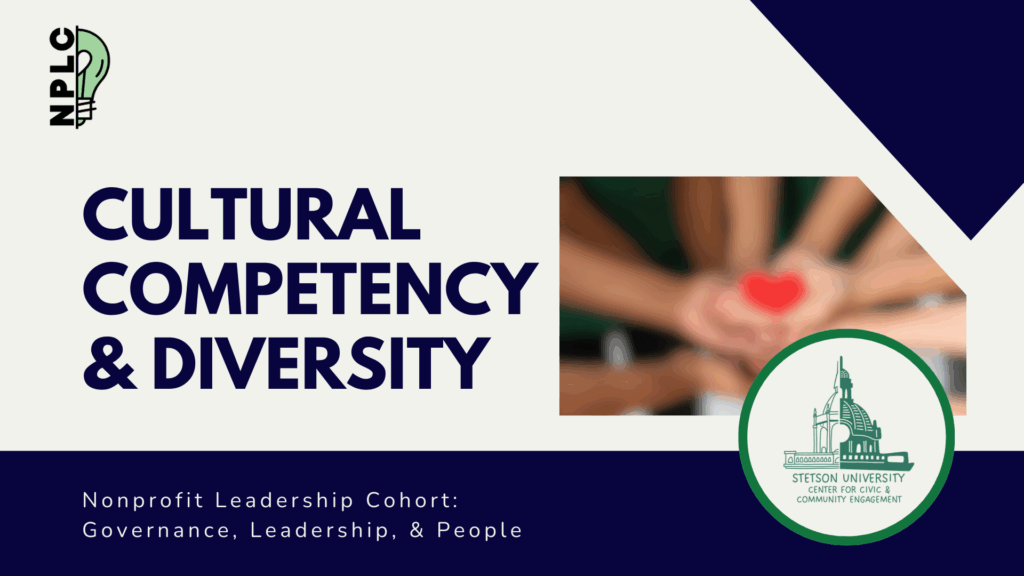
In Week 4 of the Non Profit Leadership Cohort, participants engaged with the vital topic of Cultural Competency and Diversity. Nonprofits exist to serve communities—and those communities are diverse in identities, experiences, and needs. For organizations to remain relevant, equitable, and impactful, they must embrace diversity not just as a value, but as a practice woven into governance, staffing, and programming.
Why is Diversity Important?
The session began with a reflection on why diversity matters. Beyond being a moral imperative, diversity strengthens organizations by bringing fresh perspectives, fostering creativity, and ensuring decisions reflect the realities of the communities served. Nonprofits that embrace diversity are better equipped to build trust, expand reach, and generate more sustainable impact.
Four Layers of Diversity
Participants explored the four layers of diversity: internal dimensions (such as age, race, and gender), external dimensions (including education, religion, and socioeconomic status), organizational dimensions (like role or seniority), and personality. Understanding these layers helps leaders recognize that diversity extends far beyond visible traits—it encompasses the complex identities and lived experiences that shape how people contribute and connect.
Culturally Competent Organizations
A truly culturally competent organization is one that doesn’t just acknowledge diversity but actively integrates it into policies, practices, and culture. The cohort discussed strategies for building cultural competence, from ongoing training and inclusive hiring practices to program design that reflects community voices. Leaders were challenged to think critically about how their organizations can move beyond representation to equity and inclusion.
Discussion on Achieving Diversity and Inclusion
The session concluded with a candid discussion on achieving diversity and inclusion in real-world contexts. Participants shared challenges such as tokenism, resistance to change, or lack of resources, and brainstormed practical solutions. The conversation reinforced that progress requires intentionality, persistence, and a willingness to confront biases at both the individual and organizational levels.
Looking Ahead
Week 4 highlighted that diversity and cultural competency are not side projects—they are essential to effective governance and leadership. Nonprofits that commit to this work create stronger teams, more authentic community relationships, and greater long-term impact.
As the Governance and People series continues, participants are building not only organizational tools but also personal leadership practices that reflect values of equity, inclusion, and belonging.
Leave a Reply